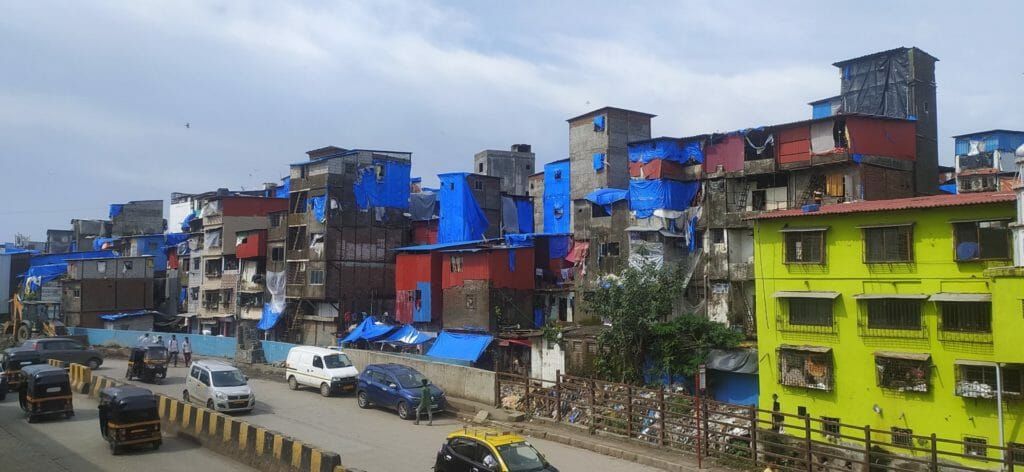Several years have passed since the Slum Redevelopment Authority (SRA) was launched to rehabilitate slum dwellers of Mumbai, and promises of free housing and proper water and sanitation facilities remain unfulfilled.
After facing eviction from their own homes, residents are stuck in rented houses with developers neither completing the project nor paying rent – owed to them – to slum dwellers.
Some projects have failed to take off the ground due to reasons such as disputes between co-developers. In other cases, people are stuck in transit camps for years together.
Those who have managed to get houses, claim poor living conditions. Other SRA buildings are struggling to maintain basic facilities like lifts and clean surroundings.
Citizen Matters interviewed the chief executive officer of SRA, Satish Lokhande, to understand efforts taken to expedite projects and resolve issues. Below is an edited interview with him.
What is the status of the SRA projects in Mumbai?
Right now we have completed and handed over 2,36790 houses from 1995 – 2022 (till June). Currently, commencement certificates have been granted and work is on to build 2,75942 tenements that should be ready in the next three years. About 2341 projects have been approved and granted Letters of Intent (LoI).
Read more: 27 years on, Mumbai’s Slum Rehabilitation Authority (SRA) has failed to deliver
What are the challenges facing the Slum Redevelopment scheme and how are you handling them?
Stalled projects are a major issue. We are trying to get them off the ground by streamlining various procedural approvals to expedite projects. Major policy decisions have been taken by the government and incentives given to make finances available for developers.
The government has also introduced an amnesty scheme, where financial institutional investors will be allowed to step in as co-developers for stalled projects. Such measures will help infuse fresh investments in projects and help complete them.
We have also terminated the Letter of Intent (LoI) of 516 developers, who have failed to even start work on their projects.
Residents have complaints about SRA houses bypassing building regulation norms and buildings that lack basic facilities like sunlight and proper ventilation. How is your team handling this?
All buildings have been built after following due processes and procedures. Necessary permissions have been taken for the SRA projects.

What do you have to say about the allegations that SRA buildings are turning out to be vertical slums?
There is no other way but to go higher to accommodate people. Here the slum density is quite high, almost in the range of 700-800 huts per hectare. It’s a challenge to accommodate so many people in buildings after leaving out space for so many reservations like playgrounds, open spaces, markets etc. and also ensuring that the scheme is feasible for the developer. This is equally important because there is no government financing involved here; so unless the developer gets his returns on investment, he won’t be able to rehabilitate people.
Many slum dwellers have been moved to rental houses with developers defaulting on paying their monthly rents. What is the SRA doing about this issue?
Please understand that developers aren’t wilful defaulters. They are struggling financially due to the market crunch owing to COVID. We are introducing measures to ensure that developers can infuse fresh investments from the market and that should automatically take care of the rental issues. To avoid this kind of scenario in the future, we have introduced measures to scrutinise the financial capabilities of the developers like verifying their income tax returns, to ensure that only those with strong financial credentials having the ability to see-through and complete the projects, get in the fray.
Also, henceforth developers will have to pay tenants one year’s rent in advance and issue post-dated cheques for the rest of the completion period of the project.
Our message to developers is very clear – step in for SRA redevelopment only if you can do so.
Also, strong decisions like terminating the LOI of 516 developers, for not starting work on the project, will serve as strong deterrent factors.
Was any penal action taken against those developers who stalled SRA projects?
We do not have any provision for levying penalties against developers under the Slums Act. The only option we have is to terminate them, which we have already initiated.
The mission statement of SRA reads “Slum Free Mumbai by 2022”. Clearly, we are nowhere close to this today as slums continue to exist in large numbers in Mumbai. When can Mumbai become slum-free?
We have already constructed 2.5 lakh houses. We have granted approvals for 1.77 lakh houses and hope to see them ready in another three years. Slums are a result of larger issues like migration, both inter-state and rural to urban, which are beyond us. We are doing what we can.